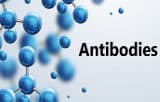Agarose Bead Technologies (ABT)
 |
||
Agarose Bead Technologies (ABT) widmet sich der Erforschung und Entwicklung von biotechnologischen Produkten auf Agarosebasis. Das Unternehmen bietet eine breite Palette von nicht aktivierten Agarosebeads für den Größenausschluss sowie aktivierte Agarosebeads für die Affinitäts- und Ionenaustauschchromatographie (Protein- und Antikörperreinigung) und voraktivierte Harze für die Kopplung von Affinitätsliganden.
ABT ist ein nach ISO 9001:2015 zertifiziertes Unternehmen und stützt sich auf ein strenges Qualitätskontrollprogramm.
Website: www.abtbeads.es
| ||

Affinity resins for antibodies
The basis for purification of IgG, IgG fragments and subclasses is the high affinity of protein A (cell wall protein derived from Staphylococcus aureus ) and protein G( derived from groups C and G Streptococci )for the Fc region of polyclonal and monoclonal IgG-type antibodies. Protein A can be used to isolate monoclonal and polyclonal IgG from ascites, serum, and tissue culture and bioreactor supernatants. Protein A purification is recommended for human (except IgG3; mouse IgG1 may bind only weakly), rabbit, guinea pig, and pig antibodies. Addition of the antibody to a protein A– Sepharose column at pH 8.0, followed by elution at a lower pH.
Protein G has a binding profile opposite to that of protein A with respect to pH: antibodies bind better at a low pH and badly at high pH. However, some antibodies (mouse IgG1, and rabbit and human antibodies) do remain bound to protein G at high pH (8 to 10), so it is best to bind the antibody at pH 5 and elute at pH 2.8. This method is useful for mouse IgG1, rat (most subclasses bind weakly although IgG2b may not), monkey, rabbit, cow, goat, horse, and sheep antibodies.



